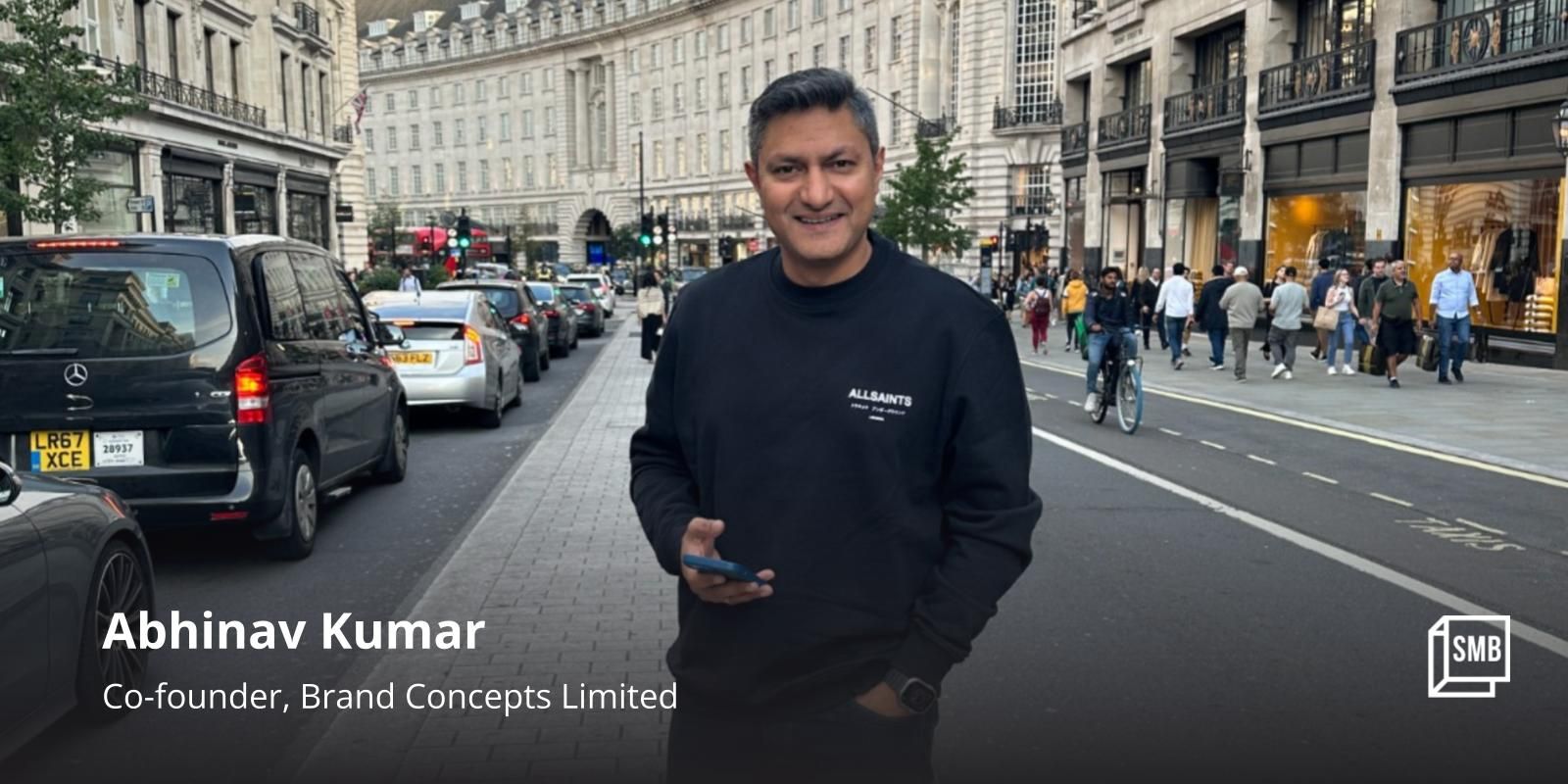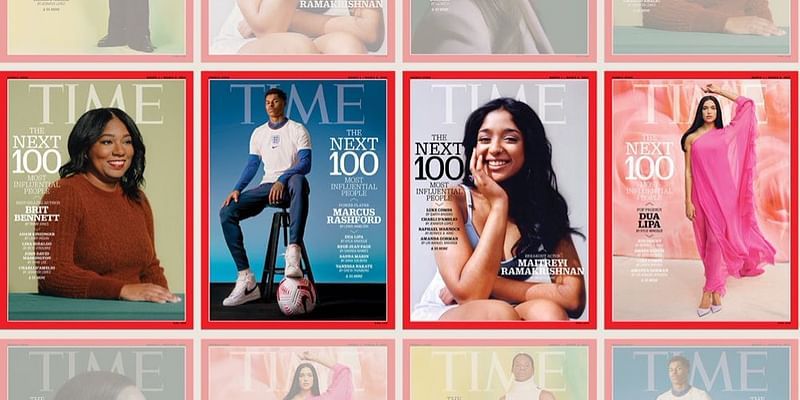How Brand Concepts is bringing fashion into luggage with Tommy Hilfiger and more
In 2011, Brand Concepts acquired exclusive rights for Tommy Hilfiger bags and backpacks in India. The Indore-based company has since been actively building a fashion-focused bag portfolio and aims to achieve a turnover of Rs 500 crore in the next few years.
Indore-based wants to move luggage and bags from solely functional items to fashion products.
Specialising in the designing and retailing of bags, travel gear, and small leather goods. It operates 35 stores—31 multi-brand shops called Bagline and six mono-brand stores for Tommy Hilfiger travel gear. Additionally, it is present in Shoppers Stop and Lifestyle.
The company has been showcasing 80-90% annual revenue growth in the last two to three years, says Co-founder Abhinav Kumar. In FY23, it achieved a turnover of Rs 163 crore—an 89% growth compared to Rs 86 crore in FY22. Its net revenue stood at Rs 45 crore in FY21.
It has clocked Rs 58 crore in revenue in the first quarter of this fiscal year.

Brand Concepts' luggage
How it started
In 2004, Kumar—who completed his MBA from Symbiosis University in Pune—moved to Mumbai to work in advertising.
Soon, in December, he transitioned to the retail sector with the Murjani Group, which had recently introduced various luxury brands in India, including Tommy Hilfiger, Gucci, Bottega Veneta, Jimmy Choo, FCUK, Calvin Klein, etc.
Around the same time, Kumar met Prateek Maheshwari, who managed his family business, IFF Overseas, which made bags and backpacks for domestic and global brands.
They decided to leverage Maheshwari's expertise in manufacturing and Kumar's background in marketing, retail, and branding to establish Brand Concepts in October 2007.
"We commenced our journey with two brands, Spykar and Rocky S. We also ventured into character licensing for school bags, featuring Disney, Cartoon Network, Spider-Man, and more," says Kumar.
By 2011, Brand Concepts held licenses for 15 brands. It also secured the license for Tommy Hilfiger's bags and backpacks—marking a pivotal moment for the company.
While character licensing involves getting the rights to use a specific fictional character, brand licensing requires a brand to grant the rights to use its name or trademark.
Explaining its licensing business, the co-founder says brands often diversify into product categories beyond their core speciality after experiencing significant growth to become lifestyle brands.
“They typically achieve this expansion by collaborating with experts with the know-how in designing, manufacturing, and distributing specific categories within a given country. In exchange for using the brand name, these experts take a portion of the revenue generated from these partnerships,” he tells SMBStory
From that point on, Brand Concepts shifted its focus towards building a fashion-oriented portfolio in the luggage category and discontinued its character licensing operations.
Breaking into the luggage market was challenging, given the established players like Samsonite, VIP, and Safari. "We knew it would be an uphill climb, but we had a compelling proposition to stand out," the co-founder says.
At the time, stylish options for luggage were scarce as it was seen only as a functional item, but Kumar was determined to bring fashion into it. "People around me were sceptical. They questioned the idea of buying fashionable luggage. But I was quite confident about it."
Today, people spending most of their day on social media following trends know that luggage now serves as a fashion accessory, with customers seeking stylish options to complement their airport look.
Starting with Tommy Hilfiger, Brand Concepts has acquired licenses for United Colors of Benetton and Aeropostale. Additionally, it has developed its own product lines under the names Sugar Rush and The Vertical.
"People want to look good and fashionable now. They choose brands according to current trends, and there is still a lot of potential for this category to grow," Kumar adds.

Manufacturing and designing
According to him, Brand Concepts' USP revolves around design excellence—creating products that blend functionality and aesthetics. "In doing so, we ensure our creations remain trendy, resonating with the values and aspirations of our audience."
The design process starts with the in-house design team, led by a lead designer, identifying market needs and trends. Based on those insights, 2D/3D associate designers create 2D/3D CAD models, while graphic designers add visual elements to enhance their aesthetics and communication. Post this, the company presents it to brands for approval.
On the manufacturing front, Brand Concepts works with 80 to 85 contract manufacturers across India and China to make its products.
While 70% of its production happens in India, it outsources 30% of manufacturing to the neighbouring country. However, it will start its in-house manufacturing once it establishes its plant by FY25.
Going public and adapting to challenges
"We began with humble beginnings, and in the capital-intensive retail business, profitability alone couldn't fuel our expansion," says Kumar.
While private equity firms expressed interest, the co-founders were hesitant as they didn’t entirely align with the company's core beliefs and principles. Instead, the co-founders saw the Small Exchange Board as a viable option to raise funds.
In 2018, the company was listed on the SME exchange, and by 2011, it secured listings on the Bombay Stock Exchange and the National Stock Exchange.
During the COVID-19 pandemic, Brand Concepts entered the digital world and started selling through Amazon, Myntra, Flipkart, and other ecommerce platforms.
Over the next three years, the company aims to grow at a CAGR of 30-35%. The co-founders expect the company to have a turnover of Rs 500 crore in the next few years. It plans to expand its portfolio by adding more global brands to achieve this.
For Bagline, Brand Concepts is employing an omnichannel approach, integrating technology in physical stores. It launched its first digital store in Mumbai—where in-store customers can browse its inventory on an aisle and order products not present in the store—and plans to scale the number of stores from 35 to 100 by the next financial year.
“This digital store offers customers the opportunity to explore Bagline’s entire inventory, encompassing collections from various physical stores and warehouses,” Kumar says.
Edited by Suman Singh







![[Funding alert] Prescinto raises $3.5 M in seed round led by Venture Catalyts and Inflection Point Ventures](https://images.yourstory.com/cs/2/11718bd02d6d11e9aa979329348d4c3e/Imagewf2p-1607509774638.jpg)
![[Funding alert] Gurugram-based Bolo Indya raises $400,000 led by Inflection Point Ventures](https://images.yourstory.com/cs/2/0a385fc03e6011e999df3d1594bbde2c/Imagegtfr-1607249104762.jpg)
![[Funding alert] Digital lending platform Revfin raises Rs 100 Cr in debt round](https://images.yourstory.com/cs/2/31ee0510ca7c11eba975c529dced399e/MalvikaCopyofImageTagging52-1647263527421.png)
